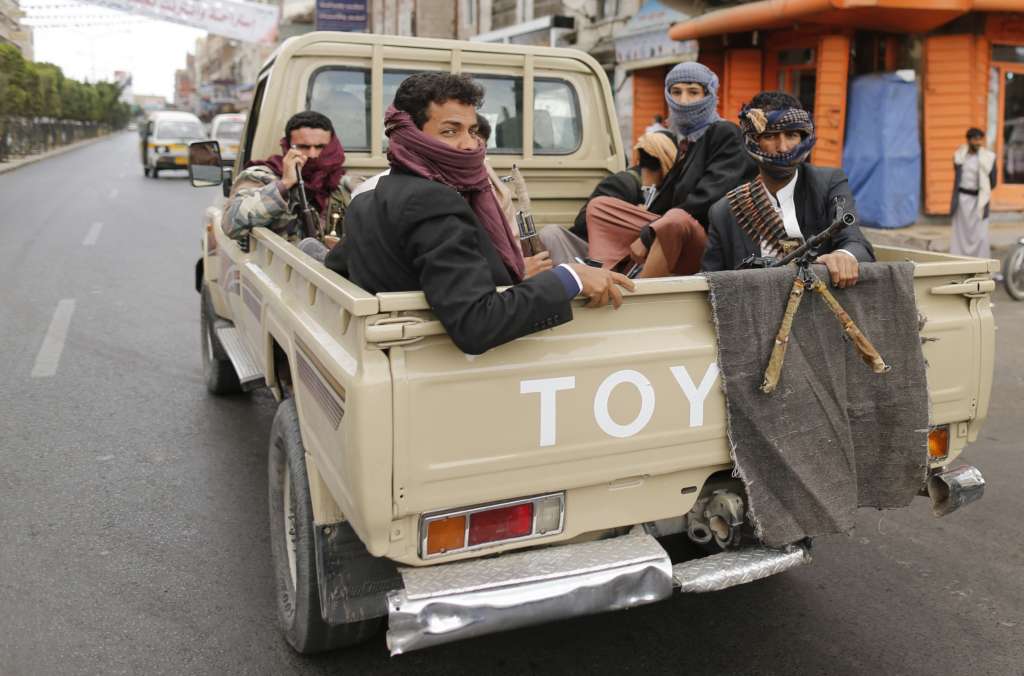Jeddah- The Iranian regime plans to dominate the international game by controlling the Mandeb Strait through its supporters – neglecting the economic and political interests of Yemeni, Arabs, and the whole world. Therefore, rebels have announced the composition of a government in Sanaa to blow up all the efforts aiming at saving the country; according to experts, the Yemeni people refuse the rule of illegitimate forces, which urges a military resolution based on the current developments; many national wise voices have also urged from a clear international failure in the country, which might contribute in the emergence of discord and the transformation of Yemen into a “new Libya”.
The Yemeni Expert Dr. Abdo Saeed sees that the rebels announcement of the composition of their government in Sanaa represents a new shift in their confrontation with the legitimate state that started on 21 September 2014 with clear features emphasizing the Iranian interference. He adds that Tehran’s role in ruining Yemen have appeared through sectarian scenes dedicated by the Iranian support for rebels.
Strategic Importance
The expert said that the conflict in Yemen was caused by two reasons: the strategic significance of Yemen and the interior efforts to control the local authority and fortune. Saeed points that Yemen enjoys an important strategic location that makes it a major player in the region and allows it to control the Mandeb Strait considered among the most important water passages in the world.
Iran and Hegemony
After Iran has raised the slogan of Islam according to the Shi’aa Ithna-Asheri sect and adopted it as a constitution, it has exploited it to enhance its regional role and Persian influence. The expert points that Iran has been interested in the strategic location of Yemen aiming at controlling the region, which was greeted by the Houthi group. He adds that the concordance of the Iranian view with the Houthis’ ambitions provided Tehran with the capacity of hitting any oil trade after the fall of Sanaa through rebels’ armed attacks. Saeed suggests that the relation between Iran and the Houthis started during the rule of Ali Abdullah Saleh, who played suspicious roles and cheated both his allies and enemies.
Iran and Saleh
On another hand, Abdul Salam Mohammed, head of Abaad Center for Studies said that Iranians have admitted their interference in Yemen through the statements of their military leaders…he added that the arrest of members from the so-called Lebanese Hezbollah – assigned to train Houthi militants – and the confiscation of Iranian weapons proves the Iranian manipulation in Yemen with the help of Houthis, who worked on spreading chaos in the North and the South.
According to Dr. Abdul Baqi Shamsan, Saleh has agreed with the Iranians on supporting the role of Houthis in the country, so he can use them in exhausting the national army and eliminating the leaders who oppose him.
Reasons behind the persistence of the coup
According to Saeed, the following reasons have been the major contributors in the persistence of the coup:
The existence of the “deep” country which was established over he past years with all its bodies, army, and security.
The huge financial capacities of the former president.
The sectarian incubator.
Intentional ignorance and starvation in some regions, which facilitated the exploitation of many people.
The Iranian support with funds, arms, and oil – that started with the emergence of Houthis and persisted through the smuggling passages.
The control of the central bank in the beginning of the coup.
The usage of national armory, which was stored during Saleh’s rule.
Spread of chaos and war trade.
After the coup of 2011
Dr. Shamsan says that with the youth uprising in 2011, Houthis have joined the scene of political shift and they were considered among the parties which participated in the Gulf-led dialogue. He notes that during the protests of 2011, Houthis have taken advantage of this scene and slowly controlled Saada.
Another Libya-Model
Dr. Shamsan called for a clear strategy to halt the project dragging Yemen toward a new Libyan version, which will put the legitimate government under more pressures to accept the surrender to Houthis fear of transforming the country into a new Libyan model.
Dead cabinet
Ona another hand, Brigadier Mohsen Khassrouf, an official in the Yemeni national armed forces said that the rescue cabinet composed by the rebels was born dead because it was based on blowing up all the international, Arab and regional peaceful initiatives and insist on war continuance.
